AWS EC2 vs. Lambda: Exploring Compute Options in the Cloud
As organizations increasingly embrace cloud computing for their infrastructure needs, choosing an appropriate computing service becomes pivotal to their success. Amazon Web Services (AWS), a leading cloud service provider, offers a range of computing options designed to meet diverse requirements. This comparative analysis focuses on two popular AWS computing services: Amazon Elastic Compute Cloud (EC2) and AWS Lambda. By examining the characteristics, use cases, and benefits of EC2 and Lambda, this article aims to provide insights into selecting the optimal computing solution for specific workloads and applications in the cloud environment.
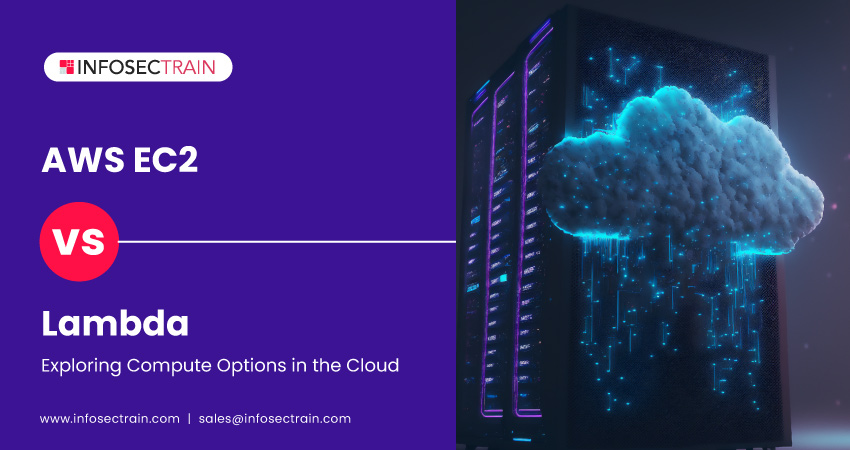
Table of Contents
What is AWS EC2?
Features of AWS EC2
What is AWS Lambda?
Features of AWS Lambda
AWS EC2 vs. Lambda
What is AWS EC2?
Amazon Elastic Compute Cloud (EC2) is a core computing service that Amazon Web Services (AWS) offers. It provides resizable and scalable virtual servers, known as instances, within the AWS cloud infrastructure. EC2 enables users to quickly provision and deploy Virtual Machines (VMs) with various operating systems and configurations, allowing them to run applications and services flexibly and cost-effectively.
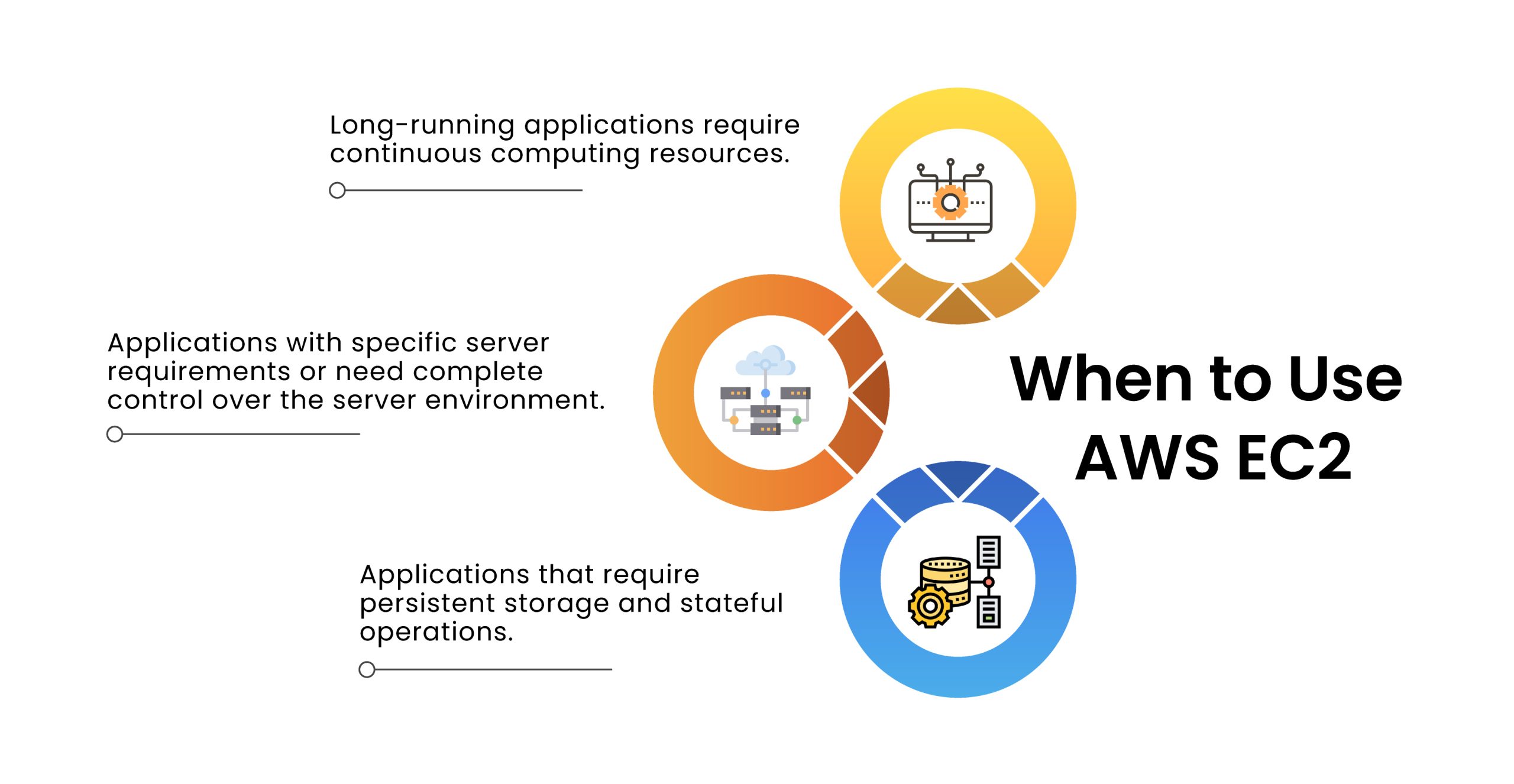
Features of AWS EC2
Key features of AWS EC2 include:
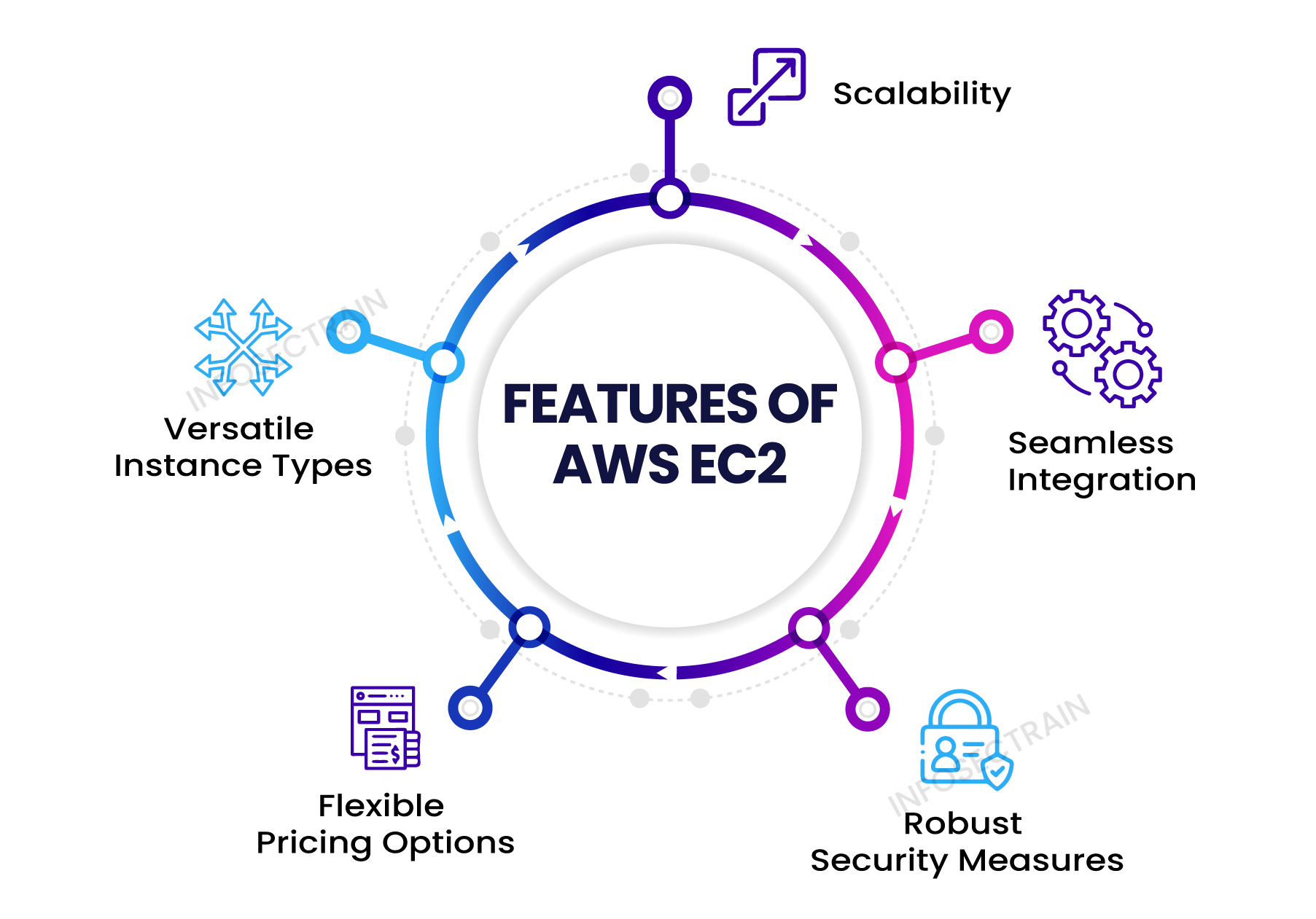
- Scalability: EC2 allows you to easily scale the number of instances up or down to meet fluctuating demands.
- Versatile Instance Types: Choose from various instance types with varying compute, memory, storage, and network capacities.
- Flexible Pricing Options: Select from On-Demand Instances or Reserved Instances with discounted pricing and many more options offering cost optimization according to your business requirements.
- Robust Security Measures: Secure your EC2 instances using features like Virtual Private Cloud (VPC), security groups, and IAM for access control.
- Seamless Integration: EC2 integrates seamlessly with other AWS services like S3, RDS, EBS, and VPC for comprehensive cloud infrastructure.
What is AWS Lambda?
AWS Lambda is the Amazon Web Services (AWS) serverless computing utility. It enables users to run their code in the cloud without provisioning or managing servers. With AWS Lambda, users can execute the code in response to events and pay only for the compute time consumed during the execution.
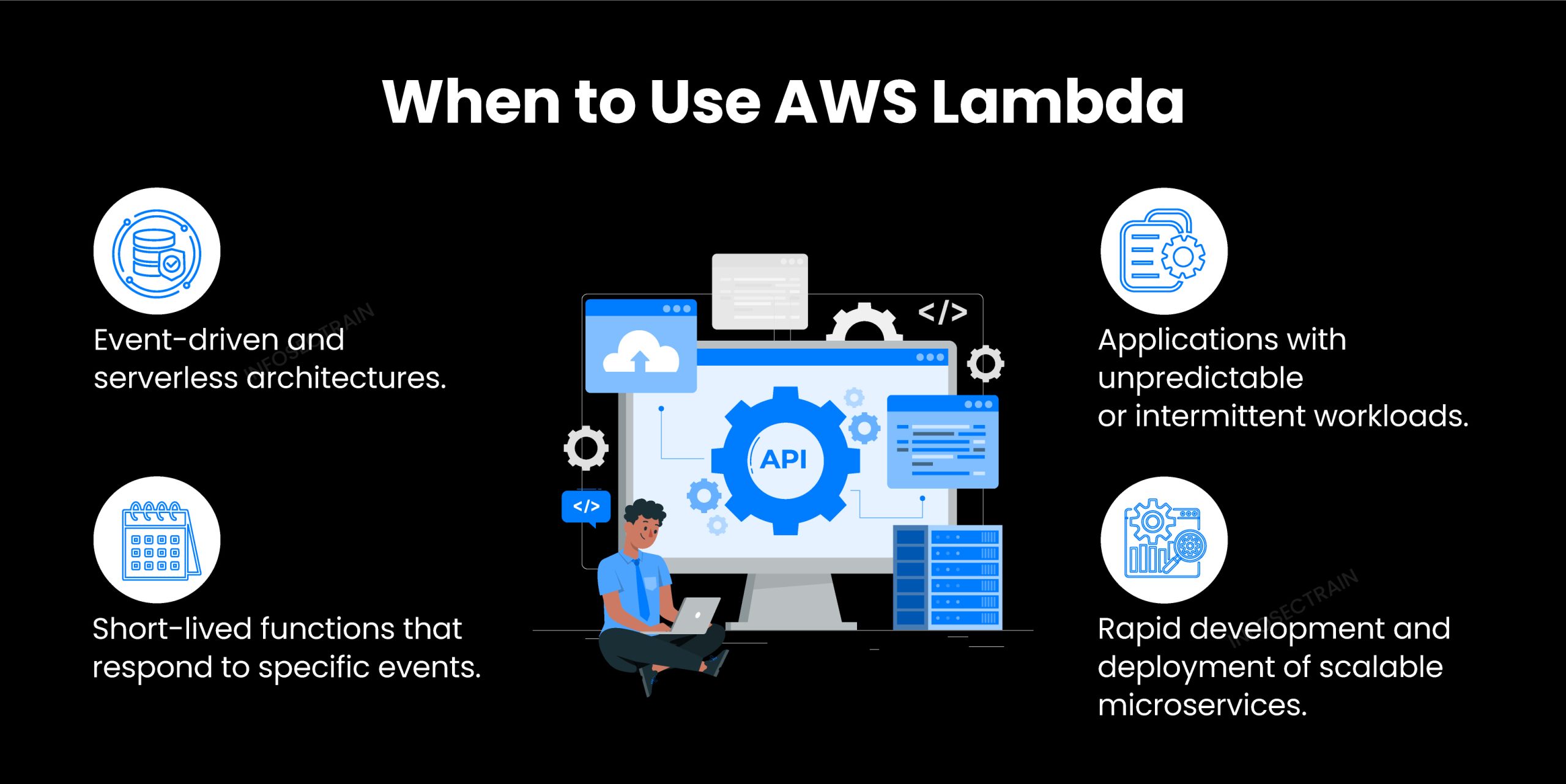
Features of AWS Lambda
Here are the key features of AWS Lambda:
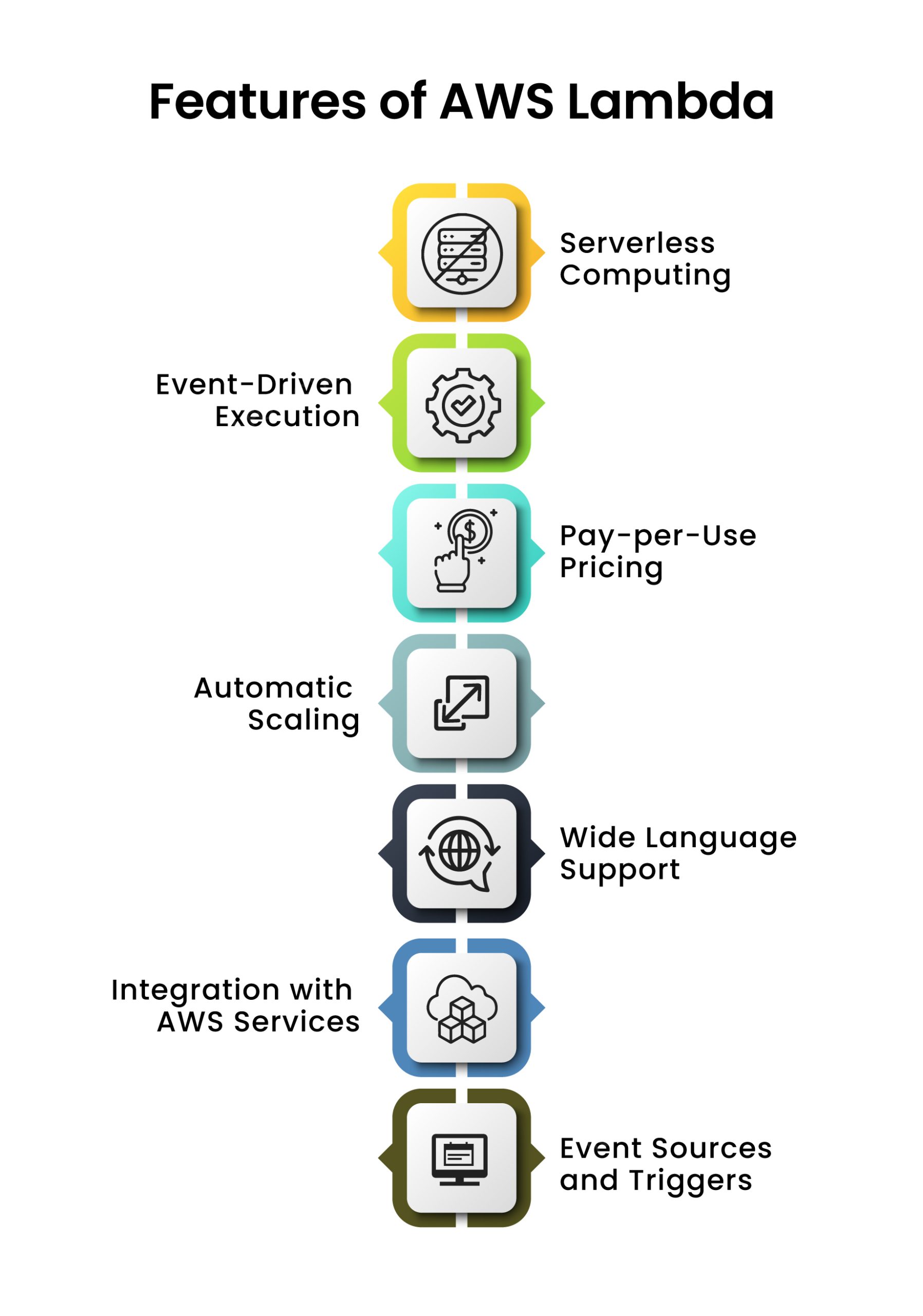
- Serverless Computing: AWS Lambda eliminates the need to manage servers, allowing you to focus solely on writing and deploying your code.
- Event-Driven Execution: Lambda functions are triggered by events, such as changes to data in S3 or updates to a database, and automatically execute in response.
- Pay-per-Use Pricing: You are only billed for the actual compute time consumed by your code, making it cost-effective for sporadic or low-traffic workloads.
- Automatic Scaling: Lambda scales the execution environment to handle incoming requests, ensuring high availability and performance.
- Wide Language Support: Lambda supports multiple programming languages, allowing developers to use their preferred language.
- Integration with AWS Services: Lambda seamlessly integrates with other AWS services, enabling you to build serverless architectures.
- Event Sources and Triggers: Lambda can be triggered by various event sources, including API Gateway, S3, DynamoDB, and custom events using CloudWatch Events.
AWS EC2 vs. Lambda
AWS EC2 and AWS Lambda are complete services offered by Amazon Web Services (AWS), but they have different purposes and distinct characteristics. Here’s a difference between AWS EC2 and Lambda:
| AWS EC2 | AWS Lambda |
|
|
|
|
|
|
|
|
|
|
Cloud Computing with InfosecTrain
InfosecTrain offers comprehensive cloud computing training programs designed to equip individuals with the necessary expertise to work with cloud technologies effectively and securely. These courses cover various aspects of cloud computing, including architecture, deployment models, service models, security considerations, and best practices.
You can enroll in our AWS Certified Solutions Architect – Associate certification training course to understand AWS EC2 and Lambda in depth.







 1800-843-7890 (India)
1800-843-7890 (India)